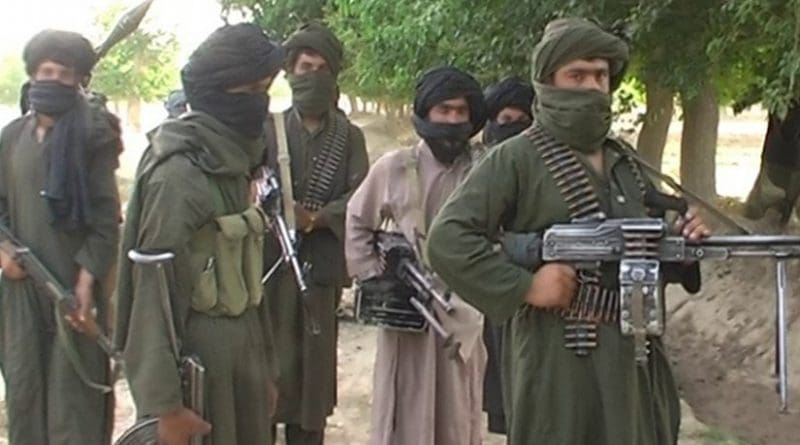The End Of The Taliban? – OpEd
Mullah Omar’s death, who was the supreme commander and spiritual leader of the Taliban, is a major issue for both the Afghan government and Taliban militants. Omar was the 11th head of state from 1996 until his regime was toppled by the US-led military intervention in 2001. His death has added uncertainty to Kabul’s fledgling peace efforts and faced Taliban leaders with a legitimacy crisis as no one has the outright legendary unifying force among Taliban leaders to fill Omar’s vacuum.
The death of the elusive one-eyed leader has left the Taliban sealed in a leadership struggle and opened new ground for the Afghan government to rise amid further factionalism among the Taliban and the military campaign to push the Taliban into peace talks. The dispute between the Taliban is not only a tribal division, but it is also an ideological rift that weakens them additionally, while exposing new opportunities for the Afghan government to force the Taliban movement toward the edge of dissolution.
Mullah Akhtar Mansour, who named himself as the Afghan leader of the Taliban on July 30, 2015 faces disapproval from different groups of the Taliban. Omar’s younger brother and son, Mullah Abdul Manan and Mohammad Yaqoob have not endorse Mansour as the new emir of the movement and have instead appealed for the successor to be from Omar’s clan. Even, the Taliban political chief in Qatar, Tayyeb Agha resigned due to tensions over Omar’s successor. These internal disagreements have raised the increased possibility of the Taliban presence as a powerful insurgents group to be decreased.
The Afghan national unity government, before any possible reunification of the Taliban and their collective agreement on successor of Mullah Omar, should push forward peace talks with the opposition groups of Akhtar Mansour, who is a close ally and subservient of Pakistani intelligence. The tussle over the election of a new emir could not only halt the Afghan-led promising peace efforts, but it could also hone the process quickly and the break should be used intelligently.
Neglect over exploiting this opportunity could have two possible consequences. Either the reunion of the Taliban or the separated factions from Akhtar Mansour will pledge loyalty to Islamic State, which is a concern for Taliban as well. The reunification would help the Taliban to resurge and continue their existence with the support of their host-country, Pakistan. If they swear allegiance to IS, or there exists a rift between the various factions, this would be not only the end for the Taliban, but it would also decrease significantly the ISI’s (Inter-Services Intelligence) aggressive influence and their proxy war in Afghanistan.
Taliban fighters on the battlefield have blamed their senior leaders for duping them about the death of their leader. At the same time, Afghan intelligence has said that Mullah Omar was poisoned and killed in a hospital. On the other hand, former key members of the Taliban who are now led by Fidai Mahaz have claimed that Mullah Omar was murdered by his deputy – Akhtar Mansour over an election dispute of who would follow after Omar as the emir ul-Momineen (Commander of the Faithful). Deceiving junior Taliban and the mysterious demise of Omar in Pakistan could not only build further tension and division among the Taliban, but also lessen Pakistan’s sway over the Taliban’s leadership.
A this deep tribal division among the Taliban exists, the Afghan government should change their medieval gambit and begin seeking peace from Pakistan, since efforts so far have failed. As an alternative, they should focus on Afghan-led peace talks with the Afghan militants, who are not under the sway of Pakistan’s intelligence influence, and those who are in favor of resuming peace talks.
In addition, the Afghan government must put intense pressure on insurgents and Pakistan through regional and international stakeholders to end ISI’s undeclared prolonged proxy war and to change its approach toward Afghanistan. If Pakistan does not change its behavior, it will be an alarming situation for the entire region. Another alternative for Afghanistan could be the subscription to a tit-for-tat diplomacy to survive this war. In doing so, Afghanistan should be allying with larger powers such as India, just as Pakistan has chosen China(India’s rival) to strengthen its existence and survival in the region.
In any case, it’s a critical juncture for the Taliban to survive as a movement due to internal fragmentation, a leadership crisis and an ideological rift. Such challenges will either lead them to join the peace talks or separate into factions. If that split does occur, then that will encourage some militants to pledge allegiance to the Islamic State, and the emir of al-Qaeda, which while it would spell the end for the Taliban movement it would most likely start another nightmare under Islamic State and al-Qaeda leaderships.
*Waheed Rahimi writes on current political, security and social affairs of Afghanistan. He holds a master in International Relation and Diplomacy from ADA University, Azerbaijan. He is based in Kabul and tweets at @wrafg

